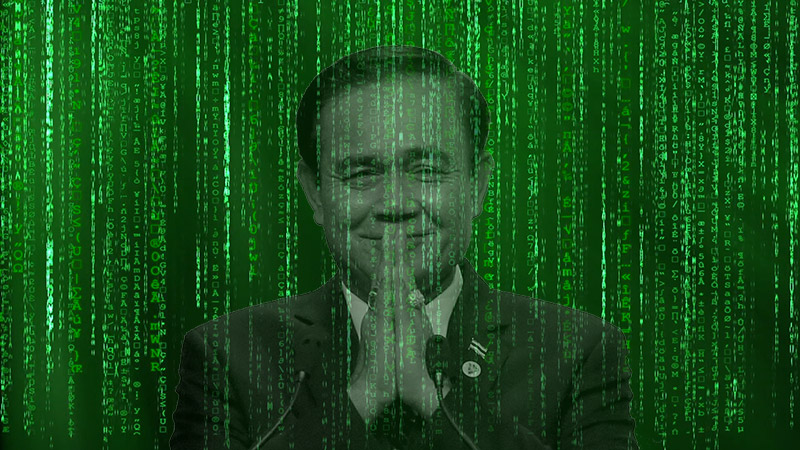Thailand’s government can now monitor your internet traffic, access your private communications as well as seize your data and gear any time it deems necessary – without court review – under a new law that came into effect Sunday.
The Cybersecurity Act, enacted two days ago by royal decree, empowers a committee led by junta leader Prayuth Chan-o-cha to take any such actions without court review for anything they decide involves an emergency or threat to national security.
Rights groups object because the government’s increasingly defined “national security” in creatively broad ways to go after political opponents, suppress speech and silence dissent.
When junta-appointed lawmakers unanimously passed the law in February, a consortium of tech companies including Google, Apple and Facebook said they were “deeply disappointed [in] … a Cybersecurity Law that overemphasizes a loosely-defined national security agenda, instead of its intended objective of guarding against cyber risks.”
The military government said the law was needed to safeguard critical infrastructure and bring the legal code up to speed with today’s cyber threat matrix.
Could the law, as written, be horribly abused for political purposes? Absolutely. But will it? No, no and no, high-level officials have insisted.
Those assurances have been greeted skeptically since the last major cyber legislation – a revision of the twisted dreck that is the Computer Crime Act – sailed through with the same assurances only to soon be used to attack the regime’s enemies.
The digital arena became Thailand’s last unfettered forum for open discourse and criticism. After seizing power in 2014, the junta immediately moved to rein it in by asking tech companies to share user data and trying to build a “single gateway” to control access. Its attempts were not very successful.
Related stories:
Rising Thai political star hit with sedition charges dating back to 2015
Thai junta chief says cybersecurity bill not used to ‘tap’ phones
Thailand seeks to tighten cyber security, raising questions about privacy protection




